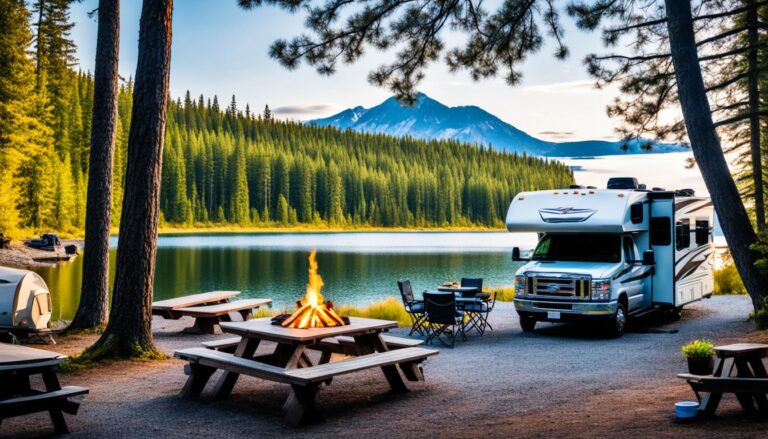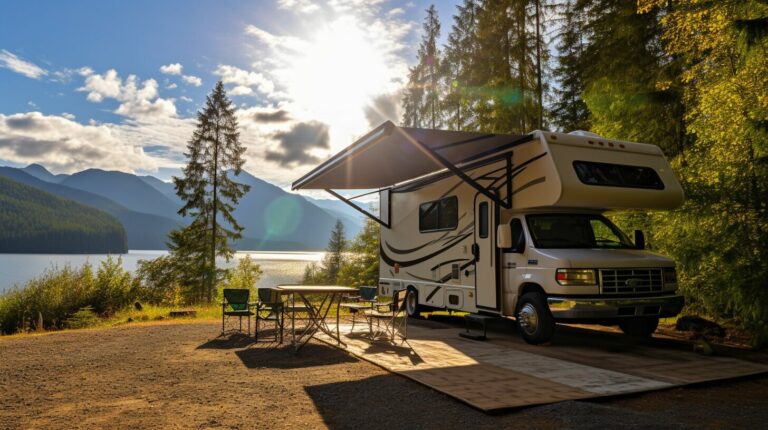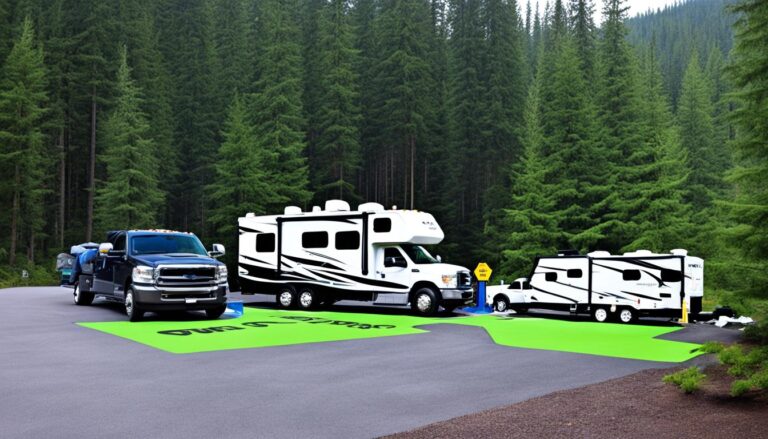Welcome to our guide on RV storage fees! Whether you’re a full-time RV traveler or a seasonal adventurer, finding the right RV storage facility is essential for keeping your beloved vehicle safe and secure. But with so many options available, it can be challenging to know where to start or what to look for.
In this article, we’ll explore the factors that determine RV storage fees, provide tips for finding affordable options, and offer guidance on negotiating rates and maximizing space. By the end of this guide, you’ll have a better understanding of RV storage costs and be equipped with the knowledge to find the ideal storage solution for your specific needs and budget.
Understanding RV Storage Costs: Factors to Consider
Storing your RV can be a significant expense, and it’s important to understand the factors that can impact the cost of RV storage. Here are some key considerations when it comes to RV storage costs:
| Factor | Description |
|---|---|
| Location | The location of the RV storage facility can have a significant impact on the cost, with facilities in urban areas typically being more expensive than those in rural areas. |
| Storage Duration | Short-term storage for a few weeks or months will be less expensive than long-term storage for a year or more. Some facilities also offer discounts for longer-term contracts. |
| Storage Type | Indoor storage is typically more expensive than outdoor storage, but it may provide better protection for your RV. Covered storage is a popular option that offers some protection while still being more affordable than indoor storage. |
| Security Features | Facilities with advanced security features, such as gated entry, surveillance cameras, and on-site personnel, may be more expensive but offer greater peace of mind and protection for your RV. |
It’s important to find affordable RV storage options that don’t compromise on quality and security. Look for facilities that offer a good balance of price, location, and amenities to meet your specific needs and budget.
Understanding RV Storage Costs: Factors to Consider
“Finding affordable RV storage can be a challenge, but by understanding the factors that influence the cost, you can make an informed decision that meets your needs and budget.”
Top RV Storage Facilities: Comparing Rates and Features
Choosing the right RV storage facility can be overwhelming. With so many options available, it can be challenging to determine which one offers the best value for your money. To help you make an informed decision, we’ve compiled a list of the top RV storage facilities in your area, and we’ve outlined the key features and amenities that each one offers.
| RV Storage Facility | Location | Price Range | Features and Amenities |
|---|---|---|---|
| ABC RV Storage | 123 Main St. | $50-$150/month | 24/7 Access, Security Cameras, RV Sanitation Station, On-Site Management |
| XYZ RV Storage | 456 Pine St. | $75-$200/month | 24/7 Access, Security Fencing, Climate-Controlled Units, Electric Outlets |
| RV Storage Plus | 789 Oak St. | $100-$250/month | 24/7 Access, Security Gates, Storage Sheds, Water and Dump Stations |
Each of these RV storage facilities offers unique features and amenities. Consider your individual needs and preferences when selecting a facility that fits your lifestyle and budget. Don’t forget to negotiate rates and ask about any discounts for long-term contracts or advance payments.
ABC RV Storage
Conveniently located on Main St., ABC RV Storage offers affordable rates and top-notch security for your RV. With 24/7 access and on-site management, you can rest assured that your RV is in good hands. Additionally, the facility boasts a state-of-the-art RV sanitation station for your convenience.
XYZ RV Storage
Located on Pine St., XYZ RV Storage offers climate-controlled units with electric outlets and security fencing. This facility is great for those who want a little extra protection against temperature fluctuations and electrical surges.
RV Storage Plus
RV Storage Plus, located on Oak St., offers storage sheds and water and dump stations in addition to 24/7 access and security gates. This facility is perfect for those who need a little extra space and want to take care of their RV maintenance without leaving the facility.
By comparing the rates and features of these top RV storage facilities, you can find the one that meets your specific needs and budget. Remember to do your research, ask questions, and negotiate rates to get the best deal possible for your RV storage needs.
Tips for Saving on RV Storage Costs
Looking for ways to save on RV storage costs? Here are some practical tips to help you get the most bang for your buck:
Negotiate Rates with Facility Owners
One of the best ways to save on RV storage costs is to negotiate rates with facility owners. Consider pre-paying for storage, signing a long-term contract, or bundling services to secure a better deal. Be sure to do your research ahead of time and compare rates at various facilities to give yourself leverage during negotiations.
Maximize Space
When it comes to RV storage, space is money. Maximize your storage area by removing any unnecessary items from your RV before storing it. Consider investing in space-saving solutions like hanging organizers or stacking bins to make the most of every inch of storage space.
Minimize Footprint
Another way to save on RV storage costs is to minimize the overall footprint of your RV. This can be achieved by removing any accessories or parts that protrude from the vehicle, such as bike racks or ladders. If you have a towable RV, consider removing the hitch to create more space.
Maintain and Preserve Your RV
Maintaining your RV when it’s in storage is another important way to save on storage costs. Make sure to properly winterize your RV before storing it to prevent damage from freezing temperatures. Additionally, invest in a high-quality cover to protect your RV from the elements and reduce the need for costly repairs down the line.
By following these tips, you can save money on RV storage costs while still ensuring that your vehicle remains safe and secure while it’s not in use.
Frequently Asked Questions about RV Storage Fees
If you’re considering storing your RV, you’re probably wondering about the cost. Here are some commonly asked questions to help you better understand RV storage fees.
What factors affect RV storage fees?
RV storage fees are primarily determined by the location, amenities, and security features of the facility. Other factors that can impact the cost include the size of your RV, the storage duration, and any additional services requested.
What is the average cost of RV storage?
The average cost of RV storage can vary widely, depending on the above-mentioned factors. However, you can expect to pay anywhere from $30 to $450 per month for RV storage.
How can I find an affordable RV storage facility?
One of the best ways to find an affordable RV storage facility is to shop around and compare rates. Look for facilities that offer discounts for long-term storage or for bundling services, such as cleaning or maintenance. Be sure to read customer reviews and check facility ratings to ensure you’re getting the best value for your money.
Can I negotiate RV storage fees?
Yes, you can often negotiate RV storage fees, especially if you’re looking to store your RV for an extended period of time. Consider pre-paying for storage, signing a long-term contract, or bundling services to secure a better rate. Be sure to ask facility owners about any current specials or promotions as well.
How can I maximize space in my RV storage unit?
To maximize space in your RV storage unit, consider removing any non-essential items from your RV and using space-saving techniques, such as stacking items or using collapsible furniture. You should also make sure your RV is clean and free of any food or debris to prevent pests or rodents from being attracted to your vehicle.
How can I preserve my RV when it’s in storage?
To preserve your RV when it’s in storage, you should clean it thoroughly inside and out, and cover it with a breathable fabric cover to prevent dust or dirt from accumulating. You should also make sure your RV is properly winterized if you’re storing it for an extended period of time in a cold climate.





